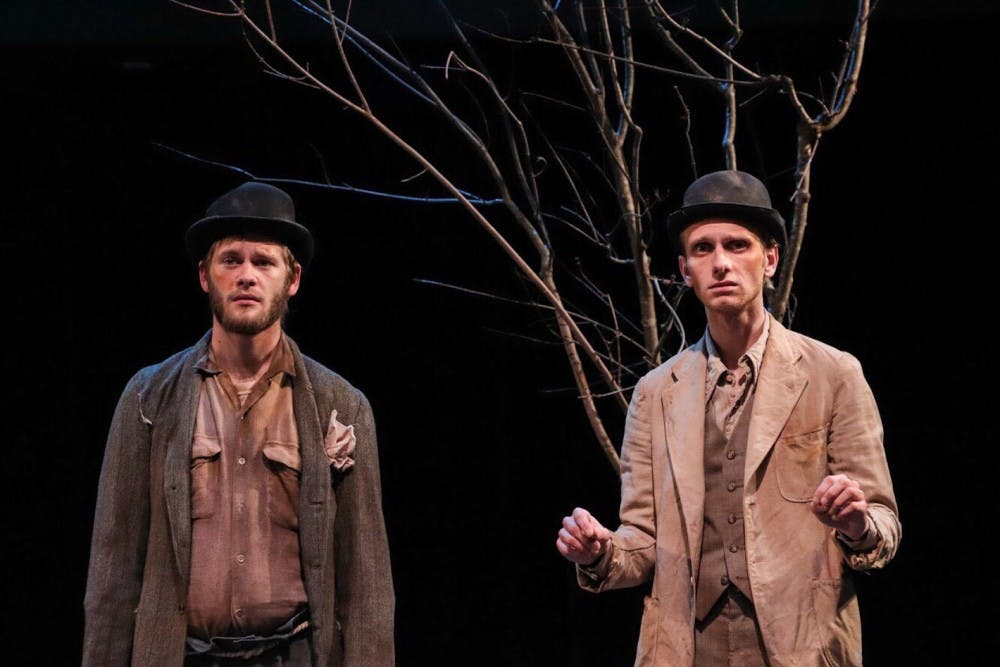USC Department of Theatre and Dance’s latest production, “Waiting for Godot,” gives viewers a unique outlook on comical tragedy.
Located in the Center for Performance Experiment, one of the smaller theaters in Columbia, the venue instantly gives the audience a more interactive feeling. The cast members are nearly within reach throughout the play, giving it an immersive feeling that works well with the dynamic of the plot.
The audience is first introduced to Estragon, played by Gabe Reitemeier, sitting on a rock in a forest-like setting. Tim Giles played Vladimir, the more well-put together half of the duo. His maturity often combats Estragon’s, providing an fascinating dynamic to their friendship. Reitemeier and Giles do a phenomenal job distinguishing the contrasts between their characters. Their dialogue is both quick-witted and humorous.
Throughout the play, Vladimir and Estragon are anticipating the arrival of Godot, a faraway character that acts as a beacon of sanity for the opposing characters.
Later introduced is Pozzo, played by Sean Ardor, a man who is assumed to be wealthier purely by his attitude and appearance. Ardor's refined accent makes his character come to life. Accompanying him is Lucky, played by Can Yasar, a man enslaved by Pozzo. Though Lucky is a man of few words, Yasar's monologue is captivating.
As the characters interact, there are similarities between Vladimir and Estrogen's relationship and Pozzo and Lucky's relationship. Vladimir is the more dominant of the duo, creating a complicated trope that's tackled later in the play.
The set designers' simple approach to the layout of the stage worked well with the play's story. A rock, tree and backdrop of the night sky made up the scenery of the play. Although there were few props, they were incorporated into the play wisely and fully submerged the audience in Beckett’s world. Several underlying messages in the play were displayed through symbolic props such as the use of ropes or a simple exchange of hats.
The story brings an eccentric take on a tale that would otherwise be dull without the impact of the dialogue. The cast members brought the characters to life with their own inflections of their personalities. This is what kept the audience on the edge of their seats as the story progressed.
A simple set and complex dialogue collides to form the wicked sense of humor and questions left for the audience to determine answers to. “Waiting for Godot” is a play that will leave viewers indulged from beginning to end.

